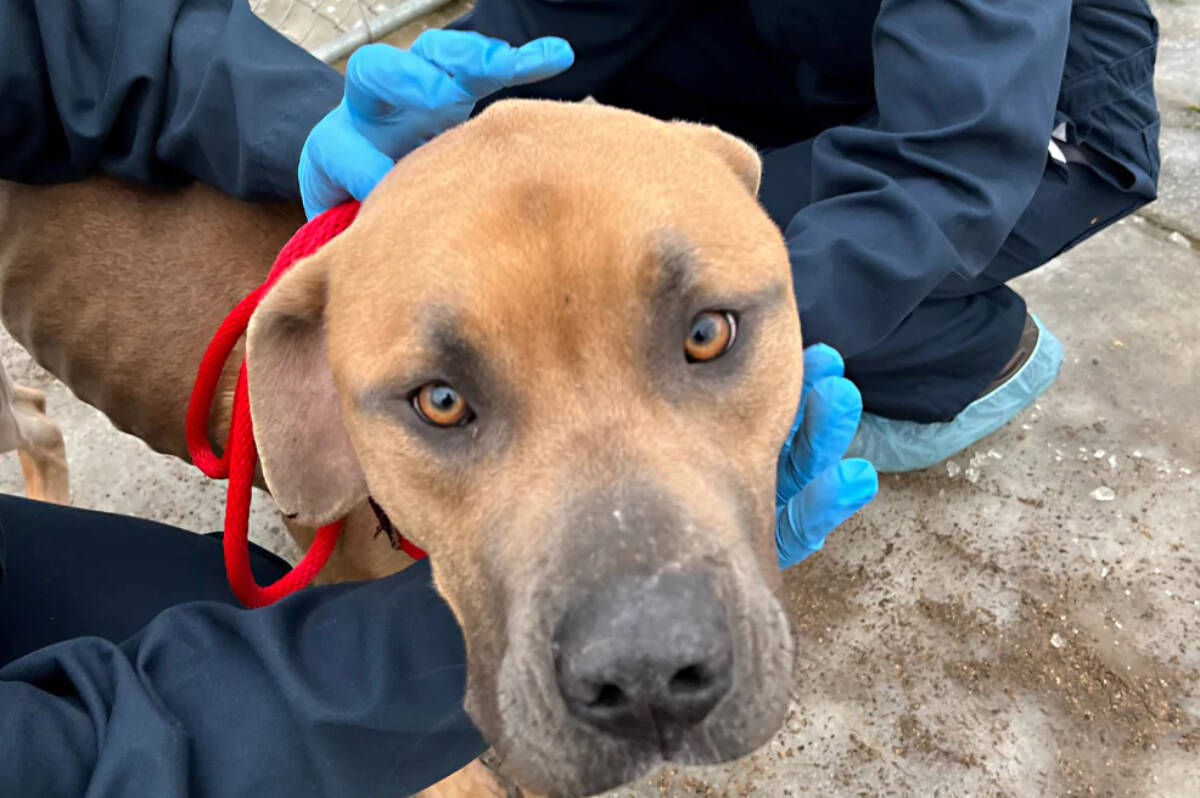WARNING: This story contains photos that readers may find disturbing.
One BC SPCA staff member said it is one of the worst cases of animal starvation they’ve ever seen after animal protection officers seized 13 Cane Corso dogs from an individual in Clearwater Jan. 11.
“The condition of these animals was just horrific – many of them were extremely emaciated,” says Eileen Drever, senior officer, protection and stakeholder relations for the BC SPCA. “It was one of the worst cases I have seen in my 42 years with the BC SPCA.”
In total, SPCA animal protection officers removed seven 10-week-old puppies and eight dogs under the age of three years. Three of the dogs remain under intensive veterinary care due to their emaciated state.
BC SPCA note the individual, who has not been named, was breeding and selling puppies for profit during COVID. Two more emaciated adult dogs on the property were surrendered into BC SPCA custody the day before the seizure.
“Some of the dogs were kept outside all day in sub-zero temperatures, with no shelter from the elements, no food and water bowls frozen over,” says Drever. “The pens had compact snow and ice and no dry place for them to lay down – I don’t how much longer these poor dogs would have lasted.” The ten-week-old puppies were kept indoors in a wire crate, but did not have access to food.
“There was evidence that at least three of the dogs had eaten parts of a blanket from the floor, desperate for anything to eat to try to stay alive,” says Drever. Some of the puppies also had wood splinters in their stool.
The dogs were rushed for medical treatment and are now in the care of the BC SPCA.
“In addition to their medical needs, which will likely be significant due to their starvation, many of the dogs are extremely fearful and unsocialized and will need on-going behavioural support before they are emotionally and psychologically healed,” says Drever.
The investigation continues and charges of animal cruelty are being recommended to Crown counsel in the case.
“No animal should be subjected to this kind of suffering,” says Drever. “We are so relieved that they are now warm and safe in our care and getting the nutrition and medical help they urgently need.”
READ MORE: 278 days of killer whale sightings last year in the Salish Sea
Do you have a comment about this story? email:
editor@wltribune.com
Like us on Facebook and follow us on Twitter.





